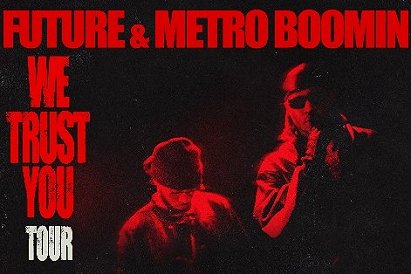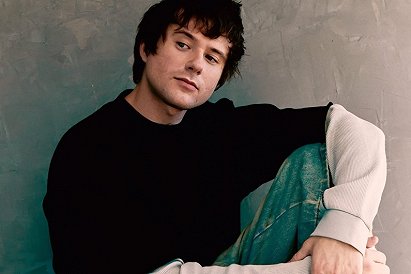Registration and login will only work if you allow cookies. Please check your settings and try again.
OK
The Americans and Ryan Bingham at 9:30 Club in Washington, D.C. on Apr 21, 2019

featuring
description
Yes, Ryan Bingham grew up in the South. Texas, mostly. But there wasn’t much in the way of consistency to his upbringing, other than his family’s chronic existence on the wrong side of the tracks.
He was born in the small city of Hobbs, New Mexico, hard up against the Texas Panhandle. He grew up in the west Texas oil fields, then spent time as a teenage rodeo cowboy in towns all across the state. Along the way, he absorbed the Cajun culture of western Louisiana, the hardcore hip-hop favored by his Houston friends, and the border songs of the Mexican immigrants. Until he moved to California in 2007, he never lived in any one place for more than two years.
From the beginning of his recording career, with “Mescalito,” Bingham has defied easy classification. As a rising country star, he ranged from Woody Guthrie-style folk songs and Spanish-language balladry to gritty hard rock. It’s all American music; fittingly, he was honored as the Americana Music Association’s 2010 Artist of the Year.
He’s enjoyed thrilling highs and suffered debilitating lows, sometimes all at once. While his career was taking off – he won both an Oscar and a Grammy for “The Weary Kind,” the theme song he wrote for the film “Crazy Heart” – he was coping with the tragic deaths of his mother, an alcoholic, and his father, who took his own life.
The losses put Bingham in a dark tunnel, and it took a while to crawl his way out. With the help of his wife, Anna Axster, and some inner soul-searching, Bingham has come back into the light. “American Love Song,” the third studio album from the Axster- Bingham indie label (after 2012’s “Tomorrowland” and 2015’s “Fear and Saturday Night”), takes all his influences – both musical and experiential – and unites them in Ryan Bingham’s best, most fully realized record to date.
“I always really struggled with my identity – who I was, where I was from,” Bingham explains of his long, deliberate pursuit of wholeness. “I always had my cowboy hat with me, but at the same time, you adapt to your environment.” Being the new kid in town usually meant unwanted attention, and having to fight to defend yourself.
“You’d blend in as a means of safety,” he recalls. “Now that I’ve grown up, I’ve shed those insecurities. I realized my identity is a blend of different hats, different shoes, different pants.”
The new album finds Bingham honing his creativity on two distinct levels, the personal and the cultural. He co-produced it with Charlie Sexton, the superb Austin guitarist who has played for years in Bob Dylan’s touring band. “American Love Song” was recorded at Arlyn Studios and Public Hi-Fi in Austin with additional recording at Matter Music in Los Angeles.
From the opening track – the spry “Jingle and Go,” which recounts his early years as an itinerant open-mic performer working, like the great Texas bluesmen before him, for tips – to the closer, “Blues Lady,” a tribute to Janis Joplin, Aretha Franklin, Bingham’s own late mother, and all the other strong women this country has produced, the album combines autobiographical reflection with a bittersweet celebration of our collective spirit in the face of enduring difficulties.
There are songs for Anna. “Pontiac” brings a Stones-y crunch to the tale of their meeting and the wild early years they spent on the road together. “Lover Girl,” which features a sweet steel guitar, reveals a more tender side of their relationship: “The scars upon my heart won't hide, but now I found your sparklin' eyes."
Musically, “Situation Station” is built on a comfortable lope and a few bright chords. But that’s deceiving. The song is the first of several on the album that take a hard line on the state of the nation, with a scathing verse about a leader “ridin’ on the back of the poor man, selling them lies.”
For years, Bingham says, he’s worn his political heart on his sleeve, standing against various kinds of social injustice. It’s a direct product of his own underprivileged upbringing, he says. But there have been those with differing perspectives who’ve failed to notice where he was coming from until they’d been sucked in by his music.
“I’m always trying to find ways to use songs to bring people together,” he says. “But the way things are right now, the things our president is saying – I think being complicit is not the way to go.”
He’s speaking his mind, and right now he has a lot to say. “Blue,” for instance, is a beautiful storm cloud of a song about Bingham’s own battle with depression after the deaths of his parents. But it’s also, he says, a commentary on the persistent taboo about seeking mental health care in this country.
“Wolves” deals with the painful memories of his youth and those inevitable confrontations with the next school bully. But it’s also a response to Bingham’s emotions when the March for Our Lives students, in the wake of the Parkland school shooting, had to contend with men and women questioning their integrity on social media.
“Grown people speaking to kids that way, that really bothered me,” he says.
Built on a hypnotic, bluesy electric guitar riff, “Hot House” imagines an unjustly imprisoned young man whose life has been effectively cut short. “What Would I’ve Become” is a twang anthem of sorts, one that asks a universal question. What if the singer had stayed put in one small town? If he hadn’t taken a chance on life?
Bingham’s growing concerns about where we’re at as a people come to a head on “America,” the album’s somber, instantly memorable signature song. Is there still an American dream, he asks, his voice rising to a poignant pitch.
These 15 new songs from one of American music’s most distinct voices answer that simple question with a resounding “Yes!”
pre-sale & discount codes
For ScoreBig, use promo code ZUMIC10 for an instant $10 discount. (Cannot be combined with any other offers. Not valid on gift card purchases. Code must be entered at checkout to receive discount.)
The cheapest ticket option is usually the primary ticket seller, but sometimes you can find tickets below face value through secondary ticket sellers. Your tickets are not more expensive when you buy through Zumic, but we do earn a commission from our ticket partners to support our news and concert listings services.
сomments
Send Feedback
you might also like











